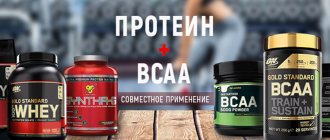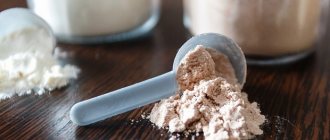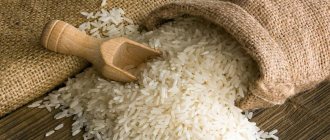- September 26, 2018
- Sports nutrition
- Yulia Lobach
In this article we will look at how old you can take protein. Properly organizing the nutrition of a young athlete is not an easy task. All parents want their child to be healthy, and under heavy loads, the growing body may not receive enough of what it needs. Today, sports nutrition stores have a huge variety of different drugs and dietary supplements, but choosing the right product can be very difficult. And a logical question immediately arises: are such products suitable at a young age and at what age can you consume protein?
What is protein and why is it used?
Protein is pure protein. Every person needs it every day. The nutrition that a child under one year of age receives in the form of mother's milk is, in fact, a protein shake. But if we talk about teenagers who are seriously interested in sports, the situation here is somewhat different. Most often, boys who want to quickly build muscle begin to consume proteins. In this case, you must first determine the pros and cons of such an event and consult with your doctor. He will tell you at what age you can drink protein without harm to your health.
Parents should be reminded of the time when they first started feeding their child cottage cheese, meat, sour cream and eggs, which are sources of protein. And this usually happens at six months of age, up to a year. Later, the child is already familiar with all products containing proteins, and during adolescence, many already begin to receive sports nutrition.
So, at what age can you eat protein?
It is allowed to be taken at any age, but it is very important to observe the frequency of administration and dosage. All incoming protein in a child’s body is used for growth, and the child can get everything that is needed for this from simple foods. However, during active sports training, the body requires an increased amount of protein, so the use of protein-based sports supplements often becomes a real necessity.
Protein dosages for children
Nutritional supplements will be beneficial if you follow the daily requirement. Higher doses of protein powder may cause weight problems in the future. Parents should strictly monitor exactly how the child consumes the nutritional shake and control the doses.
If this task is easily solved with children of primary school age, then with teenagers the situation is different. Taking cues from adults or ideal images from the Internet, they may decide to control their own cocktail practices. This increases the risk of harm to health, because adolescents may follow the principle “the more the merrier.”
Do not give protein powder without first consulting a doctor or personal trainer. Experts will give recommendations regarding the daily intake of the cocktail and methods of administration. You cannot rely on the instructions for adults that are indicated on the packaging of sports supplements.
Experts calculate the dosage based on the age and weight of the child:
- Children from 1 to 3 years old – 1.1 g per 1 kg. For most healthy children, 13 g of protein.
- Children from 3 to 7 years old - 0.95 g per 1 kg, or approximately 20 g.
- From 8 to 14 years – 0.95 g per 1 kg. About 34 g per day.
- From 14 – adult dose.
It is not necessary to take the entire daily dose at one time. You can divide the intake into two times: in the morning (after breakfast) and after physical activity.
Protein powder is mixed with milk, juice or water. The drink should not be hot. After this, the child is given fruit, yogurt or cottage cheese to receive additional vitamins.
The number one question moms ask when purchasing protein is, “Is it safe for my baby?” Definitely yes, if you don’t increase the daily intake and don’t make protein the only product in your baby’s diet. And if after taking the drink the baby experiences allergic reactions, then it is better to stop taking it.
Sports nutrition safety
Many people believe that sports supplements contain harmful chemicals. In fact, good quality sports nutrition is completely safe. Ordinary products from the refrigerator (sausage, mayonnaise, cream in cakes) contain even more harmful substances than sports supplements, but no one is in a hurry to get rid of them. So, the conclusion is clear: if the use of sports nutrition is necessary to achieve good sports results or due to an acute lack of protein in the body, then there are no special contraindications to its use.
At what age can you take protein according to scientists?
Can children drink protein shakes?
Protein shakes, sold as ready-to-drink shakes or powders that you mix with milk, water or juice, may seem beneficial. They often come in kid-friendly flavors including vanilla, chocolate or strawberry. Manufacturers sell a wide range of cocktails for children.
How to place an order on iHerb
Despite protein shake manufacturers' claims that they improve nutrition or provide strength, ConsumerReports.org notes that they are not a necessary part of a healthy child's diet. If you want to add extra protein to your child's diet, there are cheaper and better ways to do it.
Protein for children
The amount of protein your child needs depends on his age, body size, gender and activity level.
According to the American Academy of Pediatrics, a good rule of thumb is that protein should make up about 15 to 20 percent of your child's daily caloric intake.
According to the Kids Health website from Nemours, children generally need to eat about 1 gram of protein for every pound of body weight . This means that a child weighing about 30 kg should eat about 35 grams of protein per day. Very athletic older children and teenagers may need up to 2 grams of protein per kilogram of body weight to maintain their energy.
For children involved in sports
Although athletes may need additional protein if they perform strenuous exercise, the American Academy of Pediatrics recommends not relying on protein supplements to provide additional nutrition.
Experts caution that no studies show that protein supplements improve muscle development, coordination or strength.
Good whole food sources of protein include eggs, meat and fish. Vegetarian sources include nuts, dairy products and legumes such as soybeans or lentils.
Talk to your doctor about your child's protein needs before giving him any supplements so he can give advice and understand what your child needs.
Misconceptions About Too Much Protein
While some people worry about overdosing on protein, pediatrician Dr. William Sears, author of Family Nutrition, says it's unlikely to happen. Dr. Sears reports that a person must eat twice the recommended amount of protein over an extended period of time to experience any negative side effects.
If your child ate too much protein, his body would be more likely to process the protein and use it as an energy source. And the rest of the protein would be stored as fat.
William Sears emphasizes that consuming too much protein is not usually a problem in baby foods. But if there is too little of it, it can lead to health problems.
What is important to consider when taking protein?
Many scientists, pediatricians and parents have long been concerned about the topic of proteins for children and adolescents, because many of them attend various sports sections and see that adults use sports nutritional shakes. Since trainers usually do not allow taking proteins to gain muscle mass without parental permission, they should definitely talk to them about this.
A large number of studies have been conducted, the main purpose of which was to determine at what age you can take protein. No harmful effects were found. However, pediatricians note some dangerous points:
- Adequate dosage for age. A lot of energy is spent on the absorption of protein in the body, and in this case the protein comes in ready-made form. However, its excess is fraught with negative consequences in the form of liver and kidney dysfunction. In view of this, it is necessary to determine in what dosage you need to consume protein to increase muscle mass: in accordance with the recommendations of a specialist, in the right dose.
- Adequate sports loads. A child may have a stereotype that if he takes a sports shake, then he can train like adults. In fact, excessive exercise in adolescence is contraindicated.
- Psychological danger. Having taken protein shakes and realized that they do not promote rapid muscle growth, as many young people would like, they can quickly switch their attention to steroid products, which should not be taken at a young age.
- There are age restrictions, which are small, but still there. Pediatricians do not recommend taking sports nutrition for children under 14 years of age. But if there is an acute protein deficiency that cannot be compensated for in any other way, an exception may be made for the child. In other cases, the child’s only need will be quality nutrition.
In any case, a sports shake cannot be considered a complete meal replacement. This is only a supplement that helps correct protein deficiency.
Why should a child take protein?
Protein is a protein, an amino acid, a building material for the formation of bone, cartilage, muscle and other tissues of the body. Without it, the body will not be able to develop and grow properly. Our body consists of muscles, which are proteins.
A young, growing body requires an increased amount of protein for the normal formation of the body and bones. But a child does not always get enough protein for development from food.
A person receives basic amino acids from protein foods:
- milk, cottage cheese, kefir;
- Fish and seafood;
- eggs, poultry;
- nuts;
- soy products, beans and grains.
These products cover the protein needs of the child's body if the diet is comprehensive, varied and balanced. Sometimes a child does not receive enough protein, and his growth and development are slower. Such situations include:
- the child attends training and leads an active sports life;
- the nervous system is shaken;
- hyperactive, mobile;
- the baby does not eat foods that contain protein;
- slow development, low reactivity.
Under such conditions, supplements in the form of protein shakes will support the child’s body and will be able to replenish amino acid deficiency. Children develop faster if new proteins are created even as old ones die off. Protein supports this process and promotes increased growth and muscle gain.
The reason for the lack of protein can be the lifestyle of the whole family. We are talking about parents who are vegetarians. In such an environment, the child’s body will not fully function without additional sources of protein.
Contraindications
When deciding whether to take protein, you should first consult with your doctor. Cocktails should not be consumed if you have kidney or liver pathologies. In addition, the likelihood of developing intolerance to the components of the product should be assessed. This is especially true for fruit-flavored proteins, which tend to provoke a variety of allergic reactions. In this case, it is better to start making protein shakes yourself - using milk, cottage cheese, kefir, berries and fruits.
Protein Supplements for Teens
At what age can a teenager take protein?
Today, some trainers of sports sections and gyms are promoting the use of sports supplements among teenagers 14-17 years old. And this is despite the fact that the packaging of such specialized food products indicates that supplements are only allowed to be consumed after 18 years of age.
So at what age can you officially take protein? It is widely believed that manufacturers provide such information in order not to be held responsible for the consequences for those who do not comply with dosages and commit other violations when using supplements.
Protein: secrets of production
Whey protein is a residual product from the production of cottage cheese, in other words whey, which is sold in the form of powder for cocktails.
Simply put, cheese producers supply sports nutrition manufacturers with raw materials. The serum looks like a yellow translucent liquid and is easily absorbed by the body.
From any protein source, the body takes 20 amino acids to regenerate bones, muscles, and organs. If a protein source contains the nine essential amino acids that are only available from food, then it is complete.
These products include meat, dairy products, and eggs. Vegetables, rice and legumes are not complete proteins because they lack one or more essential amino acids.
Protein sources also differ in the speed of its absorption, and the biological value is the measure. Whey protein has a biological value index of 100% because it is rich in all amino acids and is easily absorbed by the body.
Protein supplements: benefits for the body
The benefits of protein are difficult to overestimate. In our body it performs transport, regulatory, protective, and catalytic functions.
- The first is the ability of protein to influence the composition of the blood, normalize the level of hemoglobin, and it delivers much-needed oxygen to organs and tissues.
- The second function concerns the normalization of hormonal levels, and hormones, as is known, are responsible for the proper functioning of the endocrine, reproductive and other systems.
- The protective function is that the protein is included in the cells of the immune system, which means it directly affects the body’s ability to resist viruses and infections.
The benefits of protein for muscles are simply enormous, because protein is the main building material of bones, skin and muscle fibers. With its deficiency, muscle tone decreases; in severe cases, dystrophy develops, when a person cannot even move his limbs. And the catalytic function lies in the ability of proteins to produce special enzymes that are responsible for metabolic processes in the body.
Is protein harmful to health?
- Bloating
- Gas formation
- Stomach upset
- Stomach ache
This can all happen for several reasons, either your body does not digest lactose or as it is also called (milk sugar) or your intestinal microflora is disturbed, a low-quality product can also be the cause. Once you notice these symptoms, consult a doctor and get tested to know for sure.
Arthritis and the use of protein supplements
Certain protein foods may affect arthritis by affecting the immune system, causing allergic reactions or weight problems.
Read also: Raw beets for weight loss: reviews and recipes
There are two main types of arthritis:
- osteoarthritis,
- rheumatoid arthritis.
Each of them “reacts” differently to a decrease or increase in protein in the diet. Gout manifests itself as an acute inflammatory reaction due to excess uric acid in the blood, therefore excess protein in the form of meat and fish with a high content of purines increases the symptoms.
Osteoarthritis is a degenerative disease that usually occurs in old age and is associated with excess weight and a sedentary lifestyle. But illness is not a contraindication for taking protein supplements. Doctors recommend consuming 46 grams of protein per day for women and 56 grams for men ages 19 and older for optimal health.
Studies have shown that eating a low protein diet reduces the signs of rheumatoid arthritis. However, the meat of fatty cold fish, being a good source of protein, blocks the production of substances that cause inflammation.
The best way to test the effect of protein supplements on arthritis symptoms is by keeping a food diary. If, after a certain food or cocktail, increased pain or redness in the joint area was observed, then the product or dietary supplement must be excluded for a week to see positive changes.
Is soy protein harmful to the body?
Soy protein is a plant protein product, the harm and benefits of which are often discussed among both amateur and professional athletes. Soy contains a high level of complete protein, including essential amino acids that the body cannot produce on its own. Of all plant proteins, soy is the closest to similar animal products.
Like any other product, soy protein has contraindications for use. Moreover, the product was also found to be harmful in the following ways:
- It is forbidden to give soy protein to children, as the product contains substances that, if used regularly, negatively affect the developing endocrine system. For children, such a process threatens the development of thyroid diseases.
- Consumption of soy protein can negatively affect puberty in boys and girls (girls experience early puberty, and boys experience delayed puberty).
- It is strictly prohibited to include the product in the diet if a person has problems with the endocrine system or there are signs of urolithiasis.
- Pregnant women are contraindicated to consume soy protein, as the hormones contained in the product can cause significant harm to the fetus.
- Excessive consumption of soy protein by young people and girls contributes to early aging of the body, as well as disruption of brain activity due to changes in the process of cerebral blood supply.
Doctors advise not to make soy protein the main product on the menu; if it is consumed as a food supplement, then the benefits from it will be greater than the harm. In the same case, if soy protein is present in the body in excess, then the likelihood of complications and disruptions in the functioning of internal systems greatly increases.
Read also: Everyone goes camping in the summer: tips for choosing a tent
Liver disease: is it possible to drink protein?
Any kidney disease is a direct indication that this substance should not be used under any circumstances. We can't even talk about the smallest dose. This includes chronic renal failure, a genetic predisposition to kidney diseases (even if the disease has not manifested itself in any way) and other inflammatory and infectious diseases of this vital organ.
Liver failure and other ailments of this organ are also an alarming sign for those who decide to start using this substance. Protein can only aggravate existing ailments.
Protein for teenagers: are cocktails harmful?
To understand whether teenagers under 18 years of age can drink sports nutrition (in particular, protein), you need to clearly understand the peculiarities of how a young and growing body works. During this period, processes occur at an incredible pace. If you consume protein or other sports nutrition, your metabolism can be disrupted. In the future, the failure develops progressively, and a small “game” with sports nutrition can end, for example, in obesity at the age of 16. Of course, how much and in what volume the supplement was taken is of great importance, but the principle remains the same.
Many believe that taking supplements at the age of 13-16 can significantly accelerate muscle growth. In fact, everything happens the other way around. As we mentioned, disruptions may occur in metabolic processes. The body needs to act, and it directs all its forces to overcome the problem. As a result, resources are spent not on mass gain, but on struggle. The result is a weakened state, lack of energy and results. In the future, no matter how much protein enters the body, there will be no use. The reverse process, which we mentioned above, is also possible.









